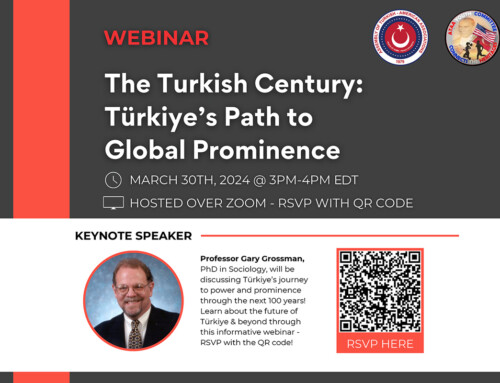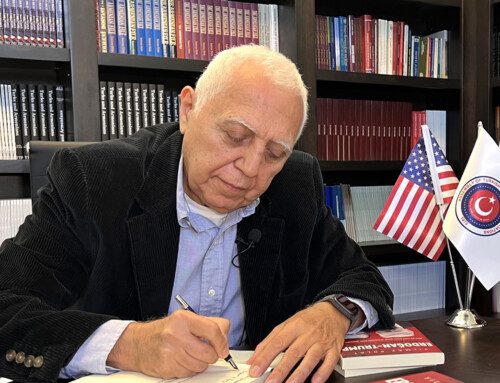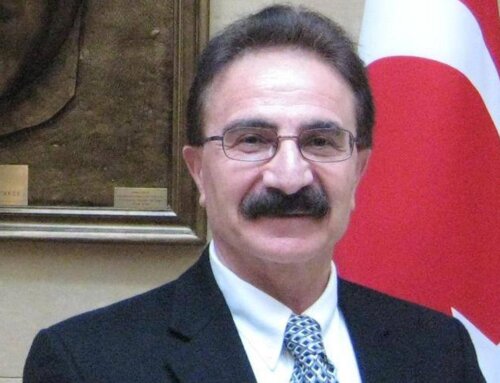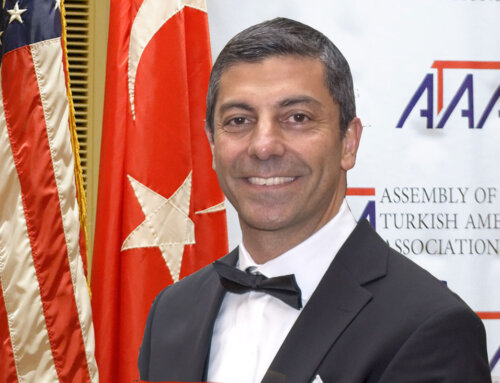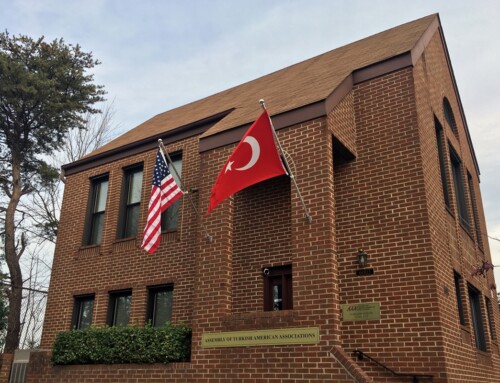In commemoration of the 82nd anniversary of the passing of Mustafa Kemal Atatürk, and in support of the World Science Day for Peace and Development, the Assembly of Turkish American Associations (ATAA) and The Light Millennium jointly hosted the Science with and for Society webinar on November 7, 2020.
The participating panelists were: Ambassador Ertugrul Apakan, permanent representative of Turkey to the UN (2009-2012), P. Hande Ozdinler, PhD, Associate Professor, Northwestern University, and Dr. Seda Camalan, postdoctoral researcher, Wake Forest School of Medicine.
 The online webinar started off with the opening remarks delivered by the ATAA President Gokhan Ozalp.
The online webinar started off with the opening remarks delivered by the ATAA President Gokhan Ozalp.
In his speech, President Ozalp highlighted the importance of World Science Day for Peace and Development and the significant role of science in society. He expressed his wish to commemorate our country’s founder, Mustafa Kemal Atatürk, who had a profound passion for science, on the 82nd anniversary of his passing to eternity on November 10 in coordination with The United Nations Science Day. “Ataturk laid a solid foundation for science, reason and human development in the framework of the sustainable development goals, developed a state policy that ensured the establishment of scientific research institutions and prevented the epidemics of that period” he stated.

Honorary speaker on Atatürk, Ambassador Ertugrul Apakan, permanent representative of Turkey to the UN (2009-2012), started off his talk with a brief explanation of how the foundation of the Republic of Turkey, which Atatürk called “his greatest work”, was achieved after a long struggle for existence and liberation. He noted that the abolition of both the Sultanate in 1922 and the Caliphate in 1924 following the Turkish War of Independence, the signing of the Lausanne Peace Treaty in 1923 and the 1921 and 1924 Constitutions are the founding documents of the modern Republic.”
Ambassador Apakan pointed out that modernization in every field had been the main goal of the new Republic and said “Revolutions in law, education, culture, health, secularism and women’s rights brought about a new political revolution and mental transformation on Turkish people. In this sense, the founding of the Republic was a period of mobilization”
He stated that in the light of political, social and scientific developments in the world, Atatürk’s perception of the modern world brought about the idea of designing a new and better society and that this design also formed the founding philosophy of the Republic.
He also pointed out to the fact that Atatürk placed science and critical mind at the center of the transformation process and that science and technology; education and culture; issues such as peace and cooperation are areas that Atatürk also prioritized. “As a leader whose principles are still valid 100 years later, it is a common value and a resource that humanity can benefit from. As a matter of fact, UNESCO has accepted 1981 as the ‘Commemoration Year of Atatürk’ due to the 100th anniversary of Atatürk’s birth and his contribution to international common understanding, peace and cooperation” he continued.”
Ambassador Apakan noted that Ronald Reagan, the 40th President of the USA, had stated the following in a message he published on the occasion: “Atatürk was a great leader in times of war and peace. For the Turkish people, it is the 100th anniversary of Atatürk’s birth. The year is as important to us as 1776”.
He said that the UNESCO General Conference declared November 10 as “World Science Day for Peace and Development” and that the aim was to increase scientific capacity and to strengthen societies through science. “Ultimately, the goal is to support peace and development processes by making science more connected with society. Science and technology are the driving forces of industrialization, and economic and social development. In this context, the aim is to place it at the core of a culture of peace and sustainable development” he added.
Ambassador Apakan concluded his speech by noting that his aim was to reveal the international meaning of the enlightenment revolution initiated by Atatürk and the gains for the Republic a century later. “Turkish National War and Revolutions inspired many countries. Today we see that this situation reflects itself on a wider ground.” he stated. (To read Amb. Apakan’s message in Turkish, please click here.)

The next speaker of the online webinar was P. Hande Ozdinler, PhD, Associate Professor of Neurology – Ken and Ruth Davee Department, Northwestern University. She started her speech with quotes by Atatürk on science.
She noted that what makes Atatürk different from the other world leaders is the fact that he believed in science and stayed on the path of science. “Atatürk was a leader who chose the path of science for the continuation of the Turkish Republic. He had a vision far ahead of his time. He taught the scientific method as a guide to the Turkish nation and achieved this in an environment where women were ignored and literacy rate was extremely low. He read thousands of books, learned French on his own, and was always open to new ideas.” she continued.
 The final speaker of the webinar was the young scientist, Dr. Seda Çamalan, who made a gripping presentation on Artificial Intelligence and Deep Learning. She started her speech by highlighting the fact that the level she reached in her career was thanks to the rights Atatürk had given to Turkish women. “I remembered Atatürk with great respect,” she said.
The final speaker of the webinar was the young scientist, Dr. Seda Çamalan, who made a gripping presentation on Artificial Intelligence and Deep Learning. She started her speech by highlighting the fact that the level she reached in her career was thanks to the rights Atatürk had given to Turkish women. “I remembered Atatürk with great respect,” she said.
The video recording of the webinar in Turkish can be viewed at the link below:


